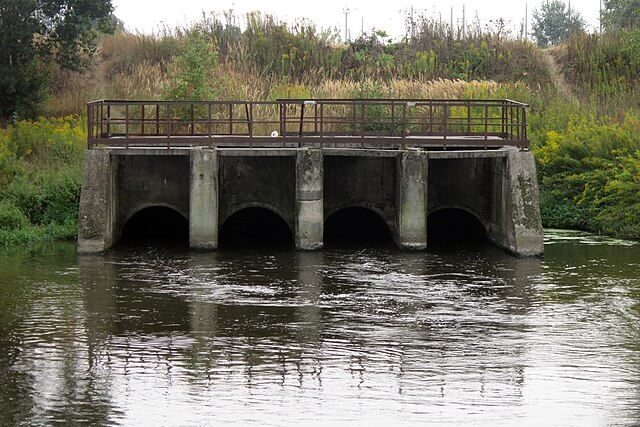
In a grim revelation new figures unveil a staggering surge in raw sewage discharges, surpassing 4 million hours into rivers and seas in the past year alone—an alarming 129% increase from the preceding 12 months.
This surge, observed across 14,000 storm overflows managed by English water companies, underscores a harrowing reality: 2023 stands as the worst year on record for sewage spills, with an estimated 59% surge in total discharges, reaching a daunting 477,972 instances.
These troubling statistics, gleaned from an early estimate of Environment Agency data obtained by the Guardian, portend dire consequences for England’s waterways, already teetering on the brink of crisis.
Industry insiders brace for intensified scrutiny, with the government poised to target water companies in the wake of this unprecedented surge in sewage discharges. The Environment Agency’s proactive measures, including the establishment of a whistleblowing hotline, signal a concerted effort to address concerns within the industry.
Blame for the surge is likely to be attributed to heavy rainfall during autumn and winter, exacerbating the strain on storm overflows designed for extreme weather events. However, routine utilisation of these overflows, even during dry spells, has perpetuated the problem, as highlighted by academic Peter Hammond’s research on water management practices.
Despite the recent deployment of monitors, known as EDMs, across all storm overflows, the magnitude of the surge surpasses expectations, casting doubt on the efficacy of monitoring measures alone. Moreover, these revelations coincide with a broader crisis plaguing England’s rivers, besieged by a toxic amalgam of raw and treated sewage, chemical pollutants, and agricultural runoff.
The impending release of comprehensive data underscores the urgent need for action, compelling the water industry and government to reassess their strategies. Criticisms of the government’s sluggish response to storm overflow management have prompted recent announcements, including a £180 million initiative to expedite sewage discharge mitigation efforts.
Amidst pledges for substantial investment, totalling £96 billion by the decade’s end, the industry faces backlash for passing the financial burden onto consumers. Regulatory scrutiny from Ofwat looms large, with decisions looming on whether to authorize water bill hikes to fund vital infrastructure upgrades.
As the Environment Agency unveils comprehensive data on Wednesday, the extent of sewage pollution’s toll on rivers and seas is poised to come to light. With average discharge rates soaring by 52% and criminal investigations underway into potential illegal discharges, the urgency of addressing systemic deficiencies is starkly evident.
Exacerbated by groundwater ingress and exacerbated by extreme weather patterns attributed to climate change, the surge in sewage discharges underscores the imperative for decisive action. With communities and ecosystems hanging in the balance, the time for meaningful intervention is now.
——————————————————————————
At Natural World Fund, we are passionate about stopping the decline in our wildlife.
The decline in our wildlife is shocking and frightening. Without much more support, many of the animals we know and love will continue in their decline towards extinction.
When you help to restore a patch of degraded land through rewilding to forests, meadows, or wetlands, you have a massive impact on the biodiversity at a local level. You give animals a home and food that they otherwise would not have had, and it has a positive snowball effect on the food chain.
We are convinced that this is much better for the UK than growing lots of fast-growing coniferous trees, solely to remove carbon, that don’t actually help our animals to thrive.
This is why we stand for restoring nature in the UK through responsible rewilding. For us, it is the right thing to do. Let’s do what’s right for nature!
Donate today at https://naturalworldfund.com/ and join in the solution!

